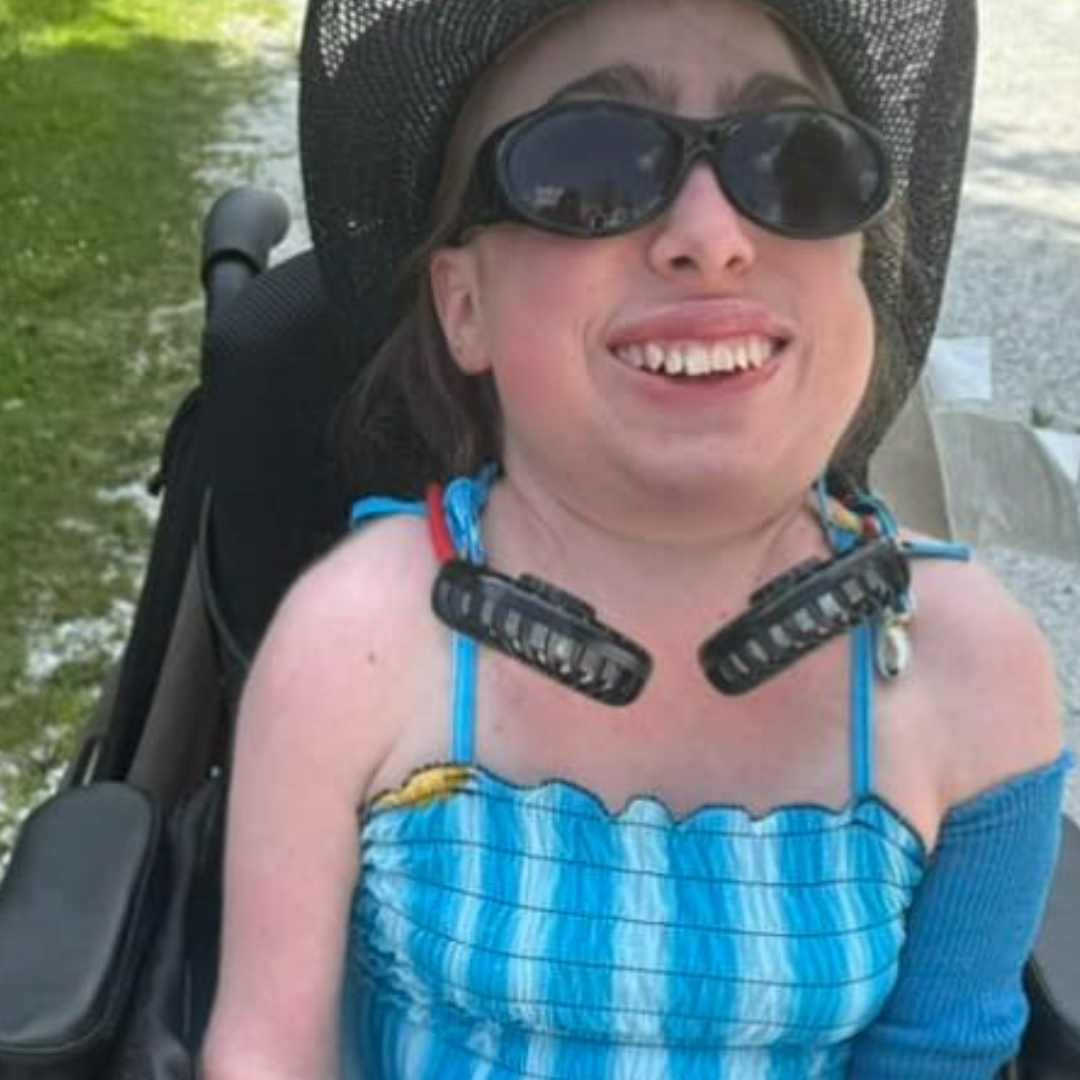One of our members, Monika, is transforming challenges into opportunities for change. Living in Quebec with MPS I, she’s turned her experiences into a powerful tool for advocacy. This spring, Monika returned to her old elementary school, armed with a mission to educate and inspire.
Six years ago, Monika lost her sight due to hydrocephalus, a complication of her condition. With support from the Canadian National Institute for the Blind (CNIB), she learned to navigate life without vision. Now, she’s sharing her knowledge with the next generation.
“I just turned 25, and I live in Quebec with my family. I live with MPS I and it has been progressing slowly but aggressively. So, I’ve been taking time to try to do more advocacy. Earlier this spring, I went to my old elementary school and visited with a group of grades 4 and five.
Because of my MPS I, I went on diagnosed with hydrocephalus and lost my sight approximately six years ago. Since then, I’ve been learning how to adapt with life without sight, along with being in a wheelchair and all the other difficulties that comes with the genetic disorder.
So I went to their classrooms and spent a few hours speaking about all the tools and technologies that I have learned to help me adapt! And we played some games.
I asked them if people with site loss and disabilities had jobs? Or if we just had fun and played all day. That was a fun question to hear all their answers.
We then had half of the class blindfolded while the other half guided them around. I then blindfolded each student one by one and gave them a random object that they could find around their house. They had to guess what it was. Everything from a thermometer to a screw, or a toothbrush. They then tried to trick me by giving me things from around the classroom! The only thing I couldn’t guess was a stuffed rooster (LOL).
I showed the class some tools like braille books, (I do not know braille but it’s important to know about) and a liquid level indicator. This clips onto the side of a coffee cup, and as you pour your liquid into the cup, it will start beeping once the liquid reaches the prongs on the little device. This intrigued the kids.
We also practiced how to ask someone if they need assistance. And not just assuming or grabbing.
I’ve finished it off by saying “if you ever see someone out and about that has a disability. Don’t be shy and say hello. We are just people like you and me. if you learn anything today, share it with your friends.”
And now I always hear little kids saying hello or shouting from across the street. I think it’s a really nice experience and it’s something we must talk more to our kids and youth about.
I love reading about advocacy and all the projects that the Canadian and MPS society and our families are doing. I hope you’re having a wonderful start to the autumn season.
~ Monika

